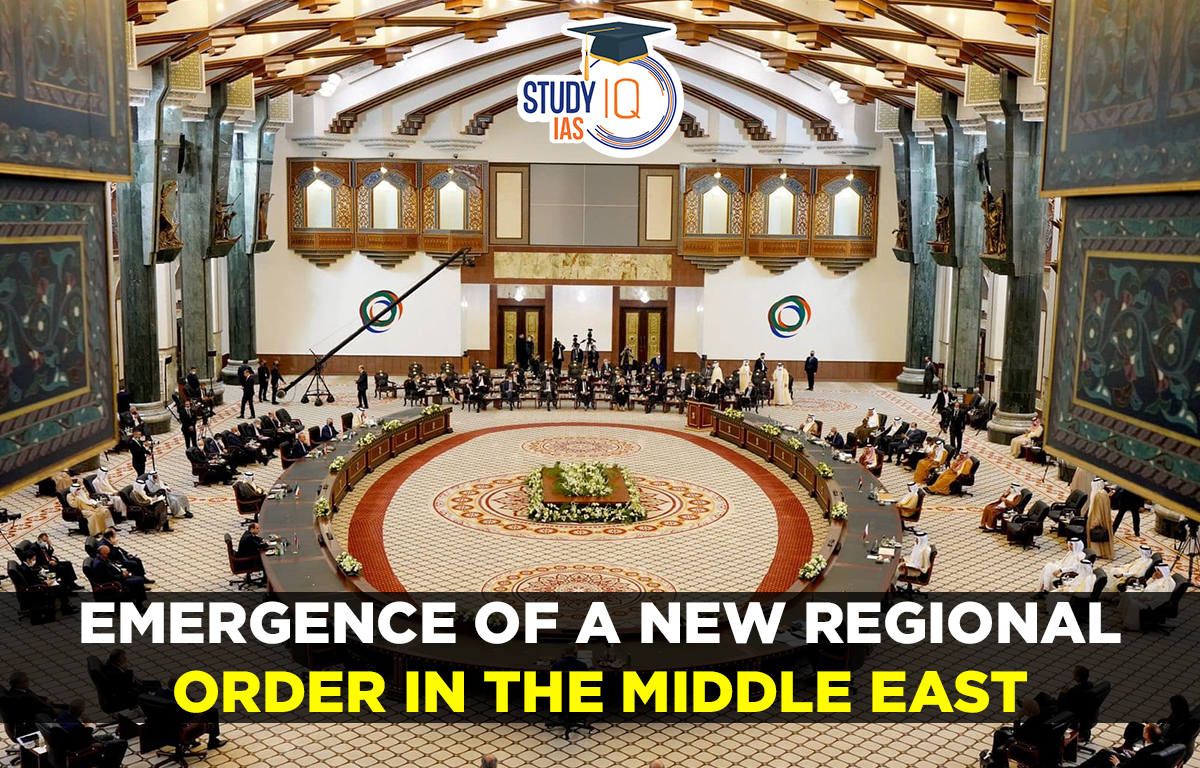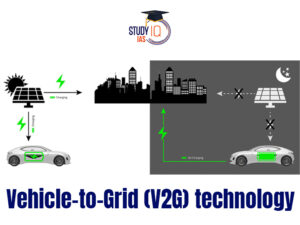Table of Contents
Context: The recent historic Saudi-Iran deal, along with subsequent diplomatic efforts within the Middle East, suggest an emerging regional order in which foreign policy decisions are made independently of American wishes, potentially leading to a new world order.
Emergence of a New Regional Order in the Middle East Background
Middle East- the Hotbed of Regional Conflicts
The Middle East has indeed been a hotbed of political events and conflicts for many years, and these issues have had a significant impact on the region’s peace and stability. Here is a brief overview of some of the major regional disputes in the region:
- Israeli-Palestinian conflict: This is a long-standing conflict between Israel and Palestine over the control of land and the establishment of a Palestinian state. The conflict has resulted in violence and unrest in the region for many decades.
- Syrian civil war: The Syrian civil war began in 2011 and has resulted in the displacement of millions of people and the deaths of hundreds of thousands. The conflict involves the government of Syria, opposition groups, and various regional and international powers.
- Yemeni civil war: The Yemeni civil war began in 2015 and involves the government of Yemen, Houthi rebels, and a coalition led by Saudi Arabia. The conflict has caused a humanitarian crisis, with millions of people in need of aid.
- Iranian-Saudi Arabia tensions: Iran and Saudi Arabia are regional rivals and have been involved in a number of proxy conflicts throughout the Middle East. Tensions between the two countries are fueled by religious, political, and economic differences.
- Turkish-Kurdish conflict: The conflict between Turkey and Kurdish separatists has been ongoing for decades. The conflict involves the PKK (Kurdistan Workers’ Party) and Turkish security forces and has resulted in violence and unrest in southeastern Turkey.

Current Developments in the Region
- Saudi-Iran deal: On 10 March 2023, Saudi Arabia and Iran announced their intention to restore diplomatic relations over a two-month period, in a deal brokered by China.
- The Foreign Ministers of both the countries have met in Beijing to discuss the details of mending their relations — opening embassies, operating direct flights and facilitating issue of visas.
- Ceasefire talks in Yemen: Saudi and Omani diplomats have also been in Sanaa, Yemen to discuss the terms of a ceasefire, indicating a potential effort to end the ongoing conflict in the country.
- Shifts in regional alliances: Furthermore, there have been significant shifts in regional alliances, with the Syrian President making visits to Oman and the United Arab Emirates, while the Syrian Foreign Minister has visited Egypt and Saudi Arabia. This indicates a possible reconciliation between Saudi Arabia and Bashar al-Assad’s regime in Syria.
What prompted the current reconciliation efforts in the region?
- Economic security: Due to economic instability and pressure on oil-dependent economies, the Middle Eastern countries are constantly aspiring for economic diversification. This can be achieved only on attaining regional peace.
- Concern over declining US engagement: The US has been a key player in the Middle East for decades, but its engagement in the region has declined in recent years. This has created a sense of uncertainty and a need for countries to rely on each other for security and stability.
- COVID-19 pandemic: The pandemic has highlighted the need for cooperation and solidarity among nations. It has also created a sense of urgency for countries to work together to address common challenges, such as public health and economic recovery.
- Conflict fatigue: Many countries in the region have grown tired of the long-standing conflicts and proxy wars that have plagued the region for years. This has created a desire for peace and stability, leading to increased efforts at reconciliation.
- Personal interests: Such as compulsion on Iran to realign its foreign policies due to rising internal pressures and China’s interests to asserts its influence in the region etc.
What are the implications?
- Regional stability: Current reconciliation efforts could potentially reduce tensions and conflicts in the region and pave the way for greater cooperation on regional issues such as the Yemeni civil war and the Syrian conflict.
- Emergence of new orders: Current developments presage two scenarios: one, a West Asian cooperative order founded on diplomatic engagements among regional states.
- This will in turn be part of a larger order, embracing Eurasia and the Indian Ocean, which is defined by multipolarity and encourages regional states to pursue their interests through diverse interactions and alignments. China can be expected to be at the centre of much of this diplomatic activity.
- China as a new peacemaker: Saudi-Iran deal points to China’s growing clout in the region and gives message to global south that China is brokering peace in the Global South.
- Declining hegemony of the US: The recent trend of reconciliation among Middle Eastern countries, independent of US involvement, is weakening the US’s traditional role as the main mediator and influencer in the region.
What could be the role of India in the current scenario?
- India can play a constructive role in promoting dialogue and cooperation between these two countries, which can help in achieving regional stability.
- India needs to be vigilant about the increasing Chinese influence in the region and work towards securing its strategic interests in the Middle East.


 SSC CGL Exam 2025 Apply Online Starts Ap...
SSC CGL Exam 2025 Apply Online Starts Ap...
 Daily Quiz 19 April 2025
Daily Quiz 19 April 2025
 Vehicle-to-Grid (V2G) Technology and its...
Vehicle-to-Grid (V2G) Technology and its...





















